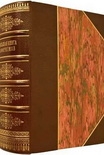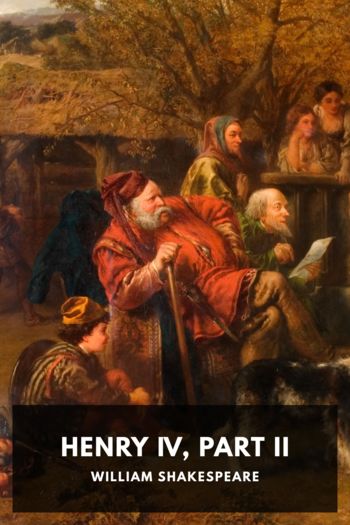Hot Stew by Fiona Mozley (feel good books .TXT) 📗

- Author: Fiona Mozley
Book online «Hot Stew by Fiona Mozley (feel good books .TXT) 📗». Author Fiona Mozley
They go inside. Mona doesn’t wait to be shown around but immediately walks to the center of the room and begins to set up. “I thought I could take photographs of you in various locations around the flat, like here on the bed and over there on the couch. I want to see how you two live. You know, make it about you as people—your lives, etcetera—not just prostitute—sorry, sex worker—in underwear on bed, you know?”
“You want me to be in my underwear?” Precious asks.
“Not for all of it. Just a couple of shots, for context.”
Precious exchanges a look with Tabitha. She should have been clearer with Mona when they first spoke on the phone. “I don’t do that kind of thing. Sorry, I know to you it must seem all the same—like, I suck cocks for a living so why would I have a problem with some smutty photos, but it’s just not something I personally am comfortable with. You never know with photos these days, where they will end up.”
Mona stops fiddling with her tripod and listens. She remains kneeling but straightens her back. She looks at Precious seriously. Her eyes were bright when they met outside but Tabitha has just switched on their red light, and what was previously green now has no color at all. They are completely black—more black than black—as if Precious is being gazed at by some revenant from a horror film.
“I completely understand,” Mona says. “It’s my fault. I should have talked to you more about my intentions. I definitely don’t want any of the photos to be smutty. Listen, let me talk you through what I’m aiming for, and let me tell you about some of the equipment I use.” She leans over to the bag Precious carried up the stairs and unzips it. Then she pulls out a large, expensive-looking camera and holds it up. “This is my digital camera,” she explains. “It’s big and shiny and new and has lots of buttons. When I take photos with this, they become digital files, and can be uploaded onto a computer and, as you quite rightly say, anything can happen to them. Once they’re on the internet, that’s it. They could go anywhere. Believe me, as someone who takes photos to make a living, this bugs me too. However, with you, I’m going to use something different.”
Mona puts the digital camera back in the bag and zips it away. Next to the bag, there is a wooden box. She unclips the latch and slowly unfolds a very old, very large camera. Precious has never seen anything like it in real life—only in the period dramas Tabitha makes her watch.
“Wow,” says Tabitha, leaning against the doorframe, having been wandering back and forth to the kitchen waiting for the kettle to boil.
“I use a photographic technique called palladium glass printing.” Mona pulls from another box a rectangle of glass like a single pane from a sash window. She passes it to Precious who instinctively holds it by the edges, as she would a photograph. “I take glass plates and coat them in a photo-sensitive substance. Where light hits it, it darkens, so when light is directed onto it in a controlled manner, by a lens, the brightest parts are black and the darkest parts remain clear. And a negative image of the scene is produced. Then I project the image onto the photosensitive paper, then develop and fix it with other chemicals. When you use this technique, the result is so detailed and beautiful, Precious, everything about you will be captured, but it won’t be harsh like modern cameras can be. It will be soft, and skin tones will be rendered in shades of silver. You’ll sparkle. It won’t look anything like porn. And it won’t be digital so it can’t get on the internet. Yes, for a few shots, you might be in your underwear, but I’ll also focus on details of your life, on the flat. I want to see you in your environment. Have you heard of a photographer called Diane Arbus?”
Precious says that she hasn’t.
“I have,” Tabitha interjects.
“Have you?” Precious swivels around to look at Tabitha. She strongly suspects Tabitha is lying to impress their guest.
“Of course,” she insists.
Mona explains, “She was an incredible photographer, famous for her environmental portraits; those that situated her subject within their surroundings. Let me see if I can find an example.” Mona takes out her phone, types, then scrolls. She turns the phone round and shows Precious a photograph of three identical girls—triplets—sitting on a bed. They are wearing matching white shirts and dark skirts and their dark hair—all cut the same length—is held back with matching hairbands.
Tabitha comes closer to look, and leans over Precious’s shoulder. The cups of tea she was making have been forgotten. The kettle boiled and switched itself off some time ago. “God, triplets are freaky, aren’t they? Twins are bad enough but triplets are even worse.”
“Well exactly,” Mona agrees. “Arbus is playing with us. The girls are identical, yet there is no symmetry in the image. A lesser photographer would have lined them up perfectly and stood at the end of the bed and the photograph would have been an exercise in precision. But Arbus subverts our expectations. Nothing is lined up. Everything is out of kilter. And so cramped. You can see the girls’ other two beds on either side. The curtains and the wallpaper are very fussy. It’s all too much. It’s claustrophobic. We’re invited to think about the lives the girls lead, what it’s like to be one of three. You can tell as much about a person from a photo of their bedroom as you can from a photo of their face.”
“More,” agrees Tabitha, sycophantically.
Not to be outdone, Precious contributes too. “We know that better than anyone.”
“I bet.” Mona nods towards the bed Precious, and now Tabitha, are sitting on. “Is this where you sleep?” She directs





Comments (0)